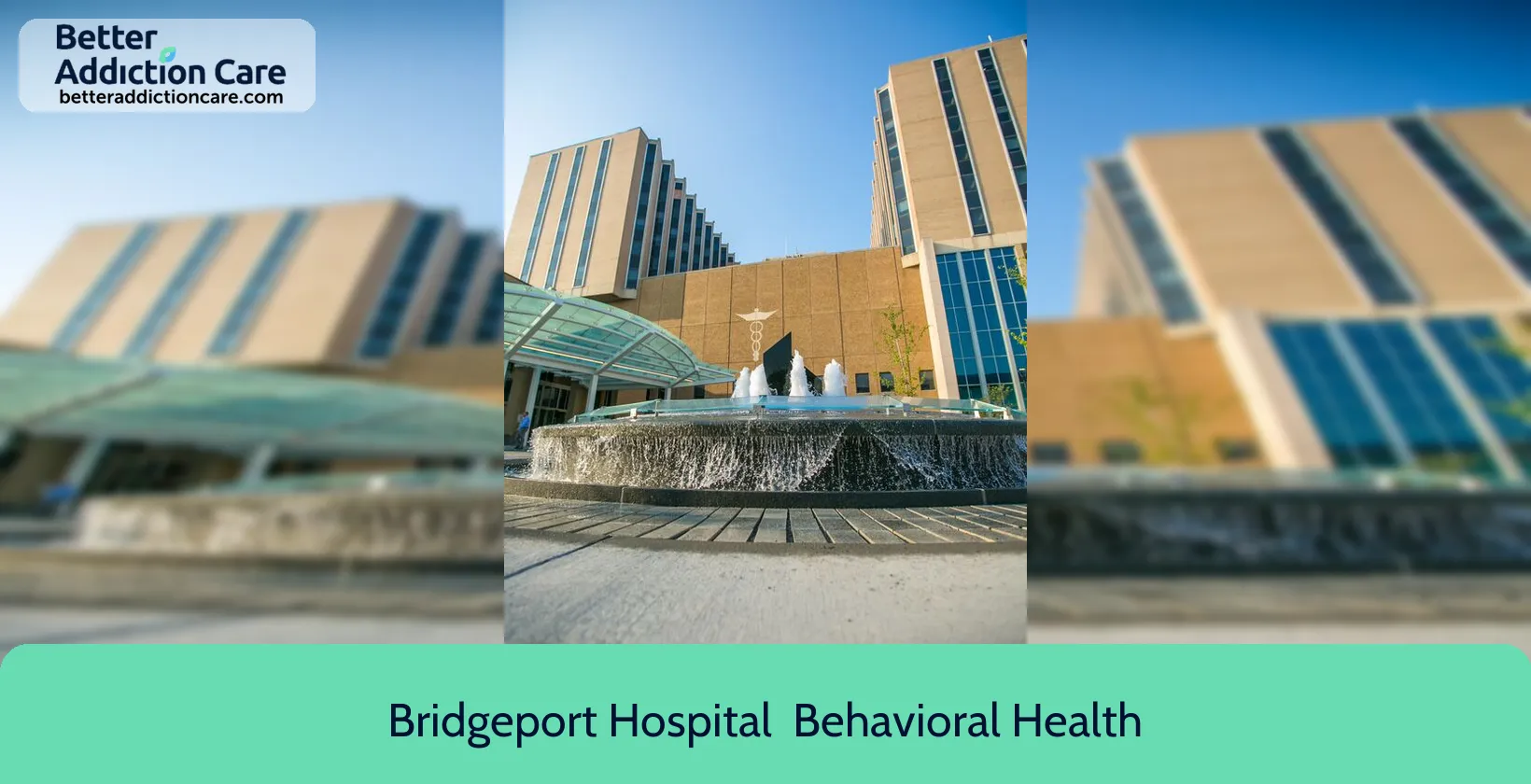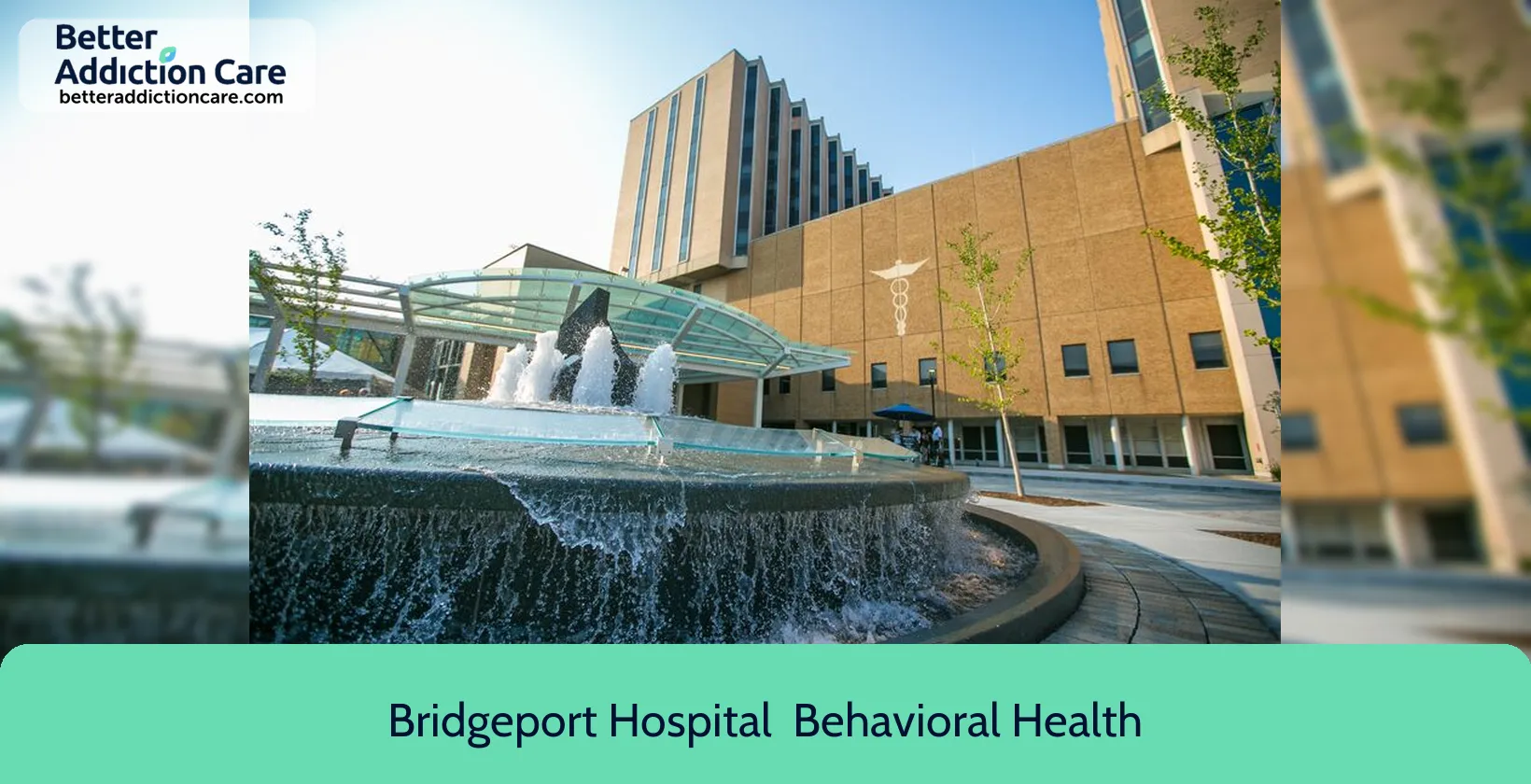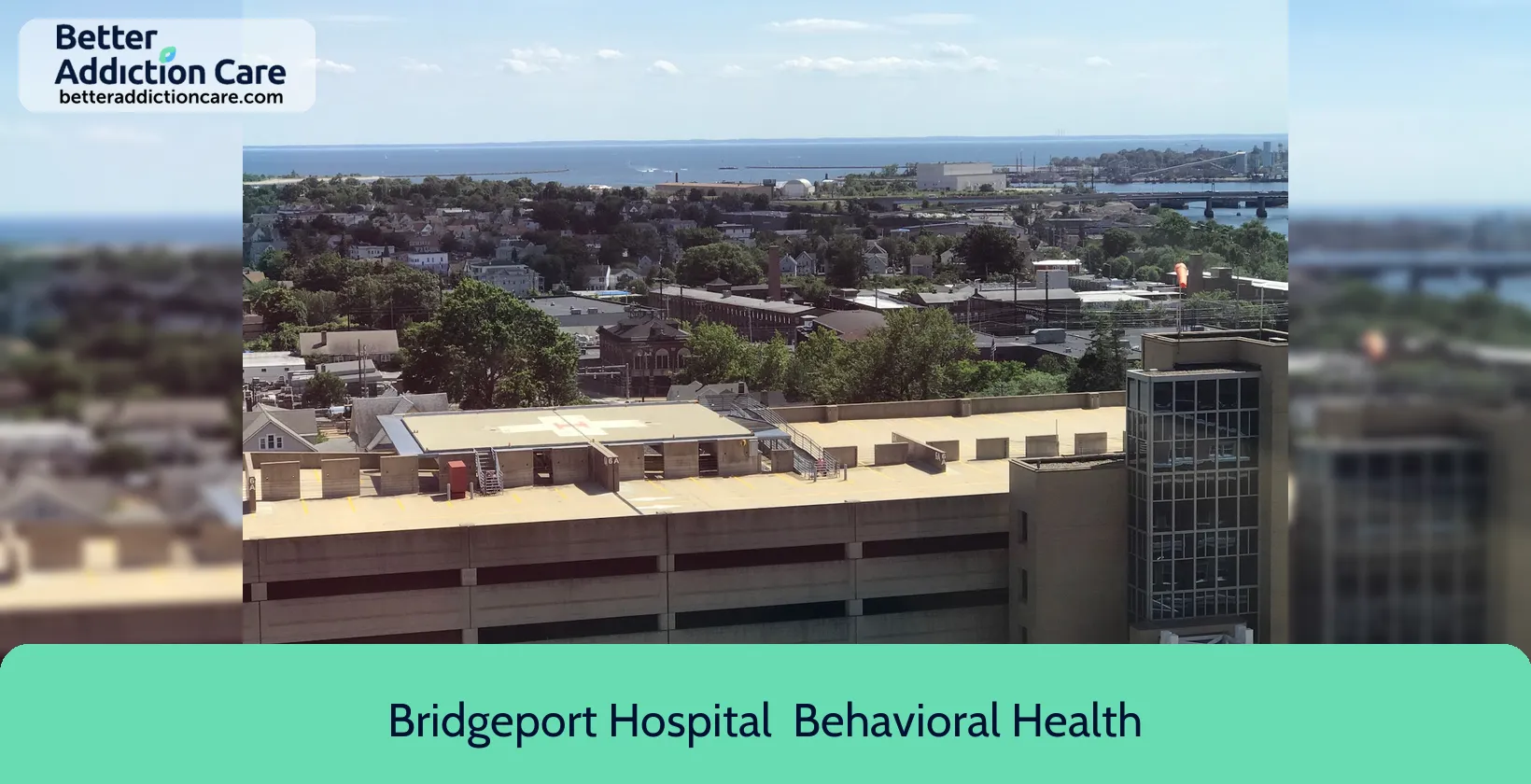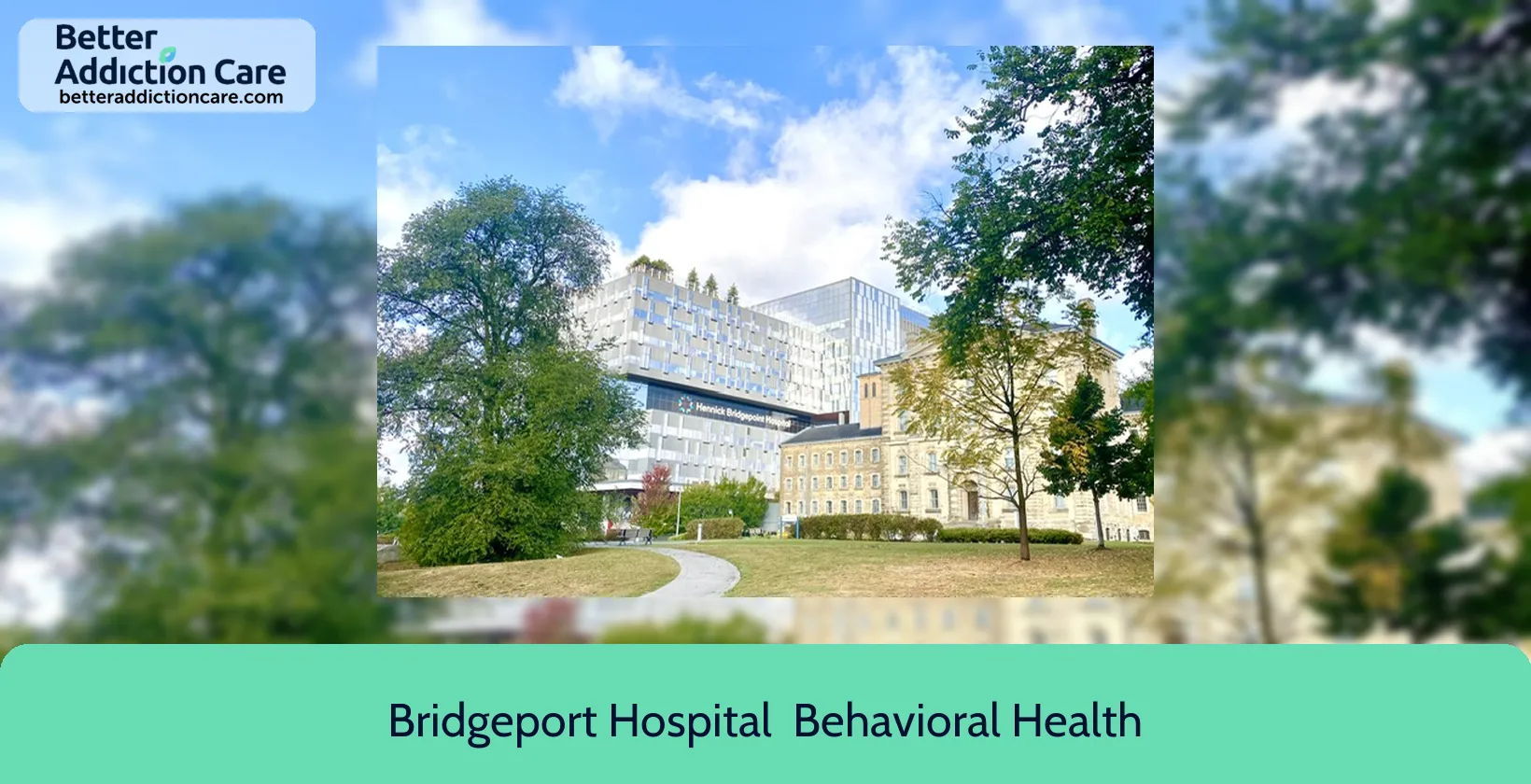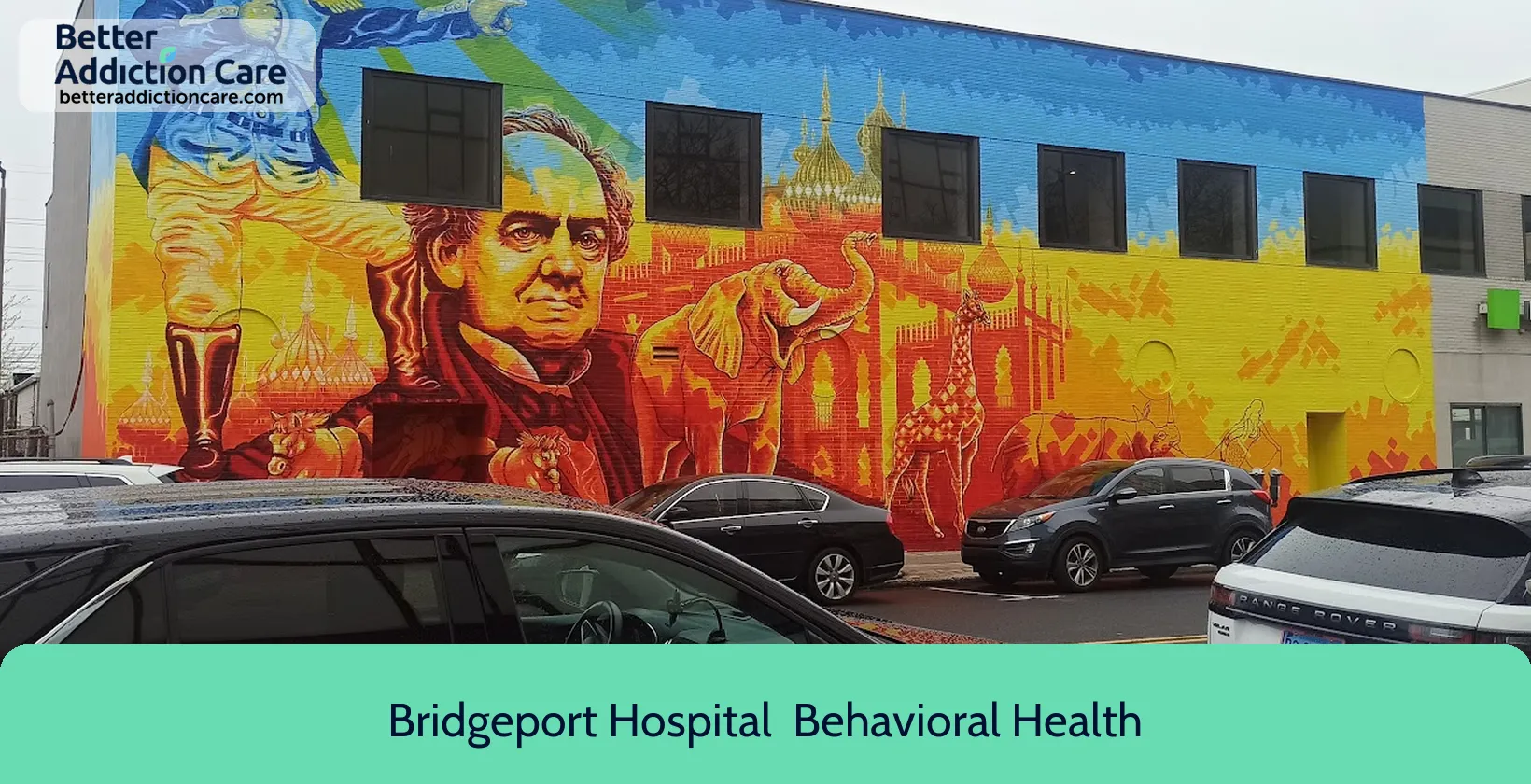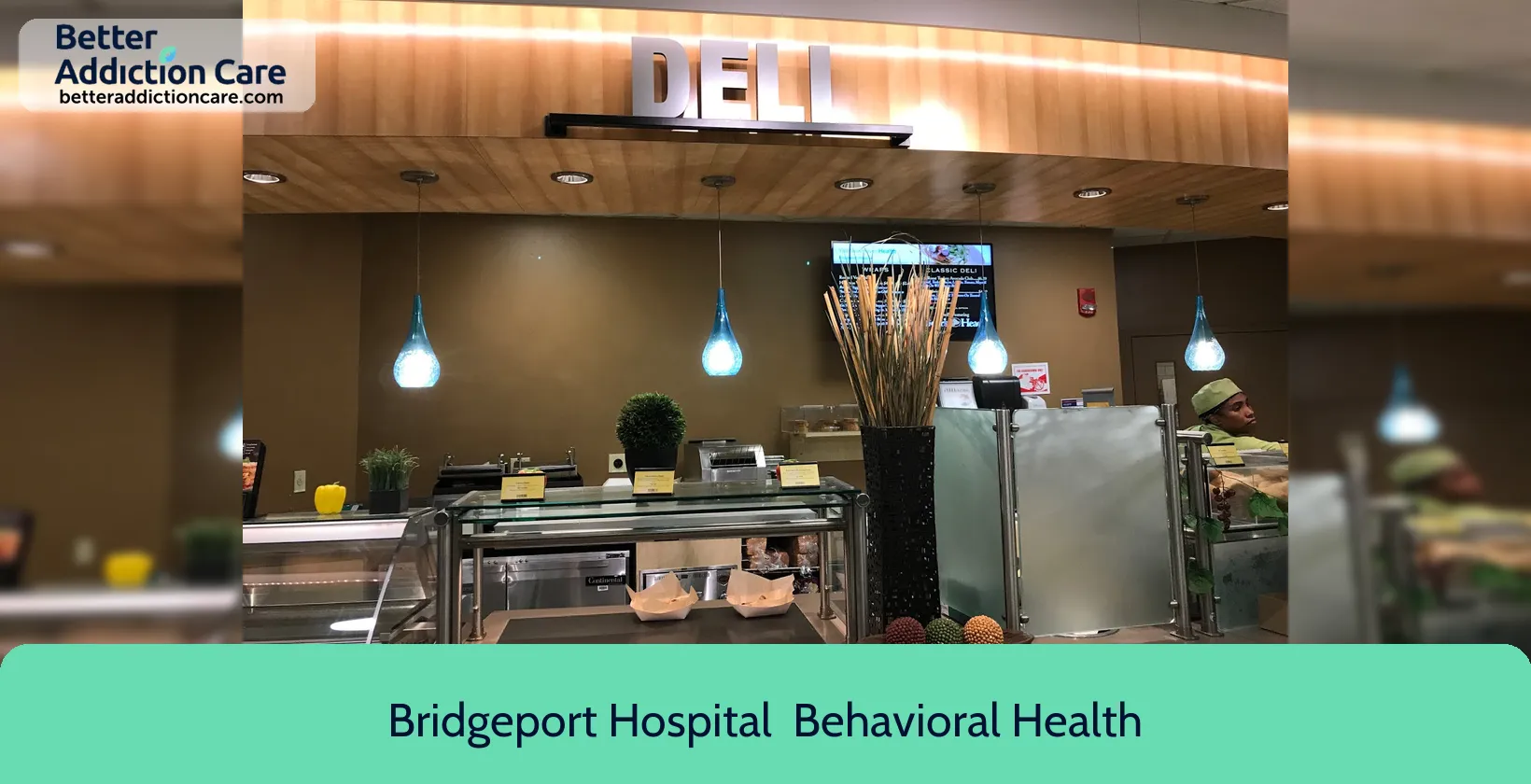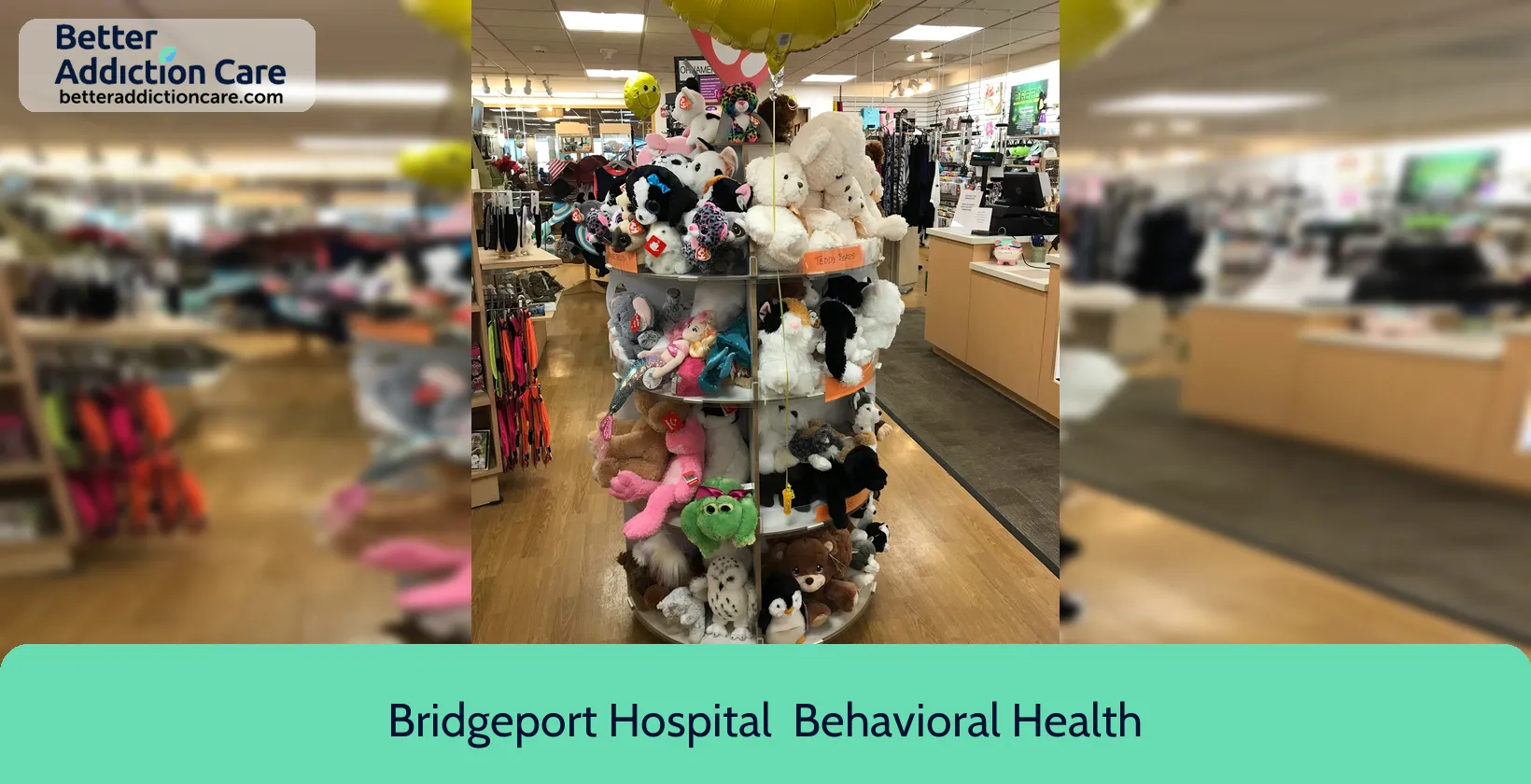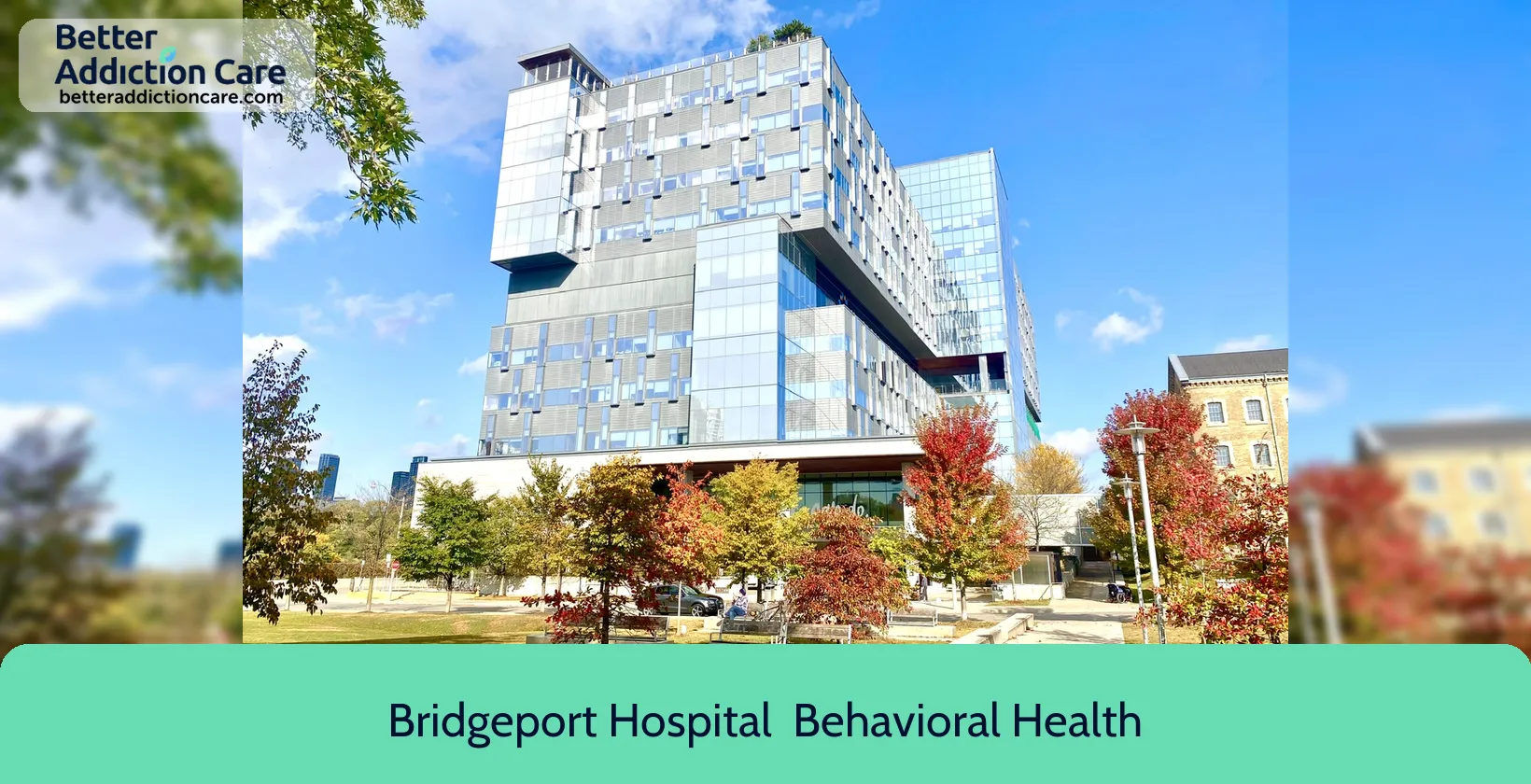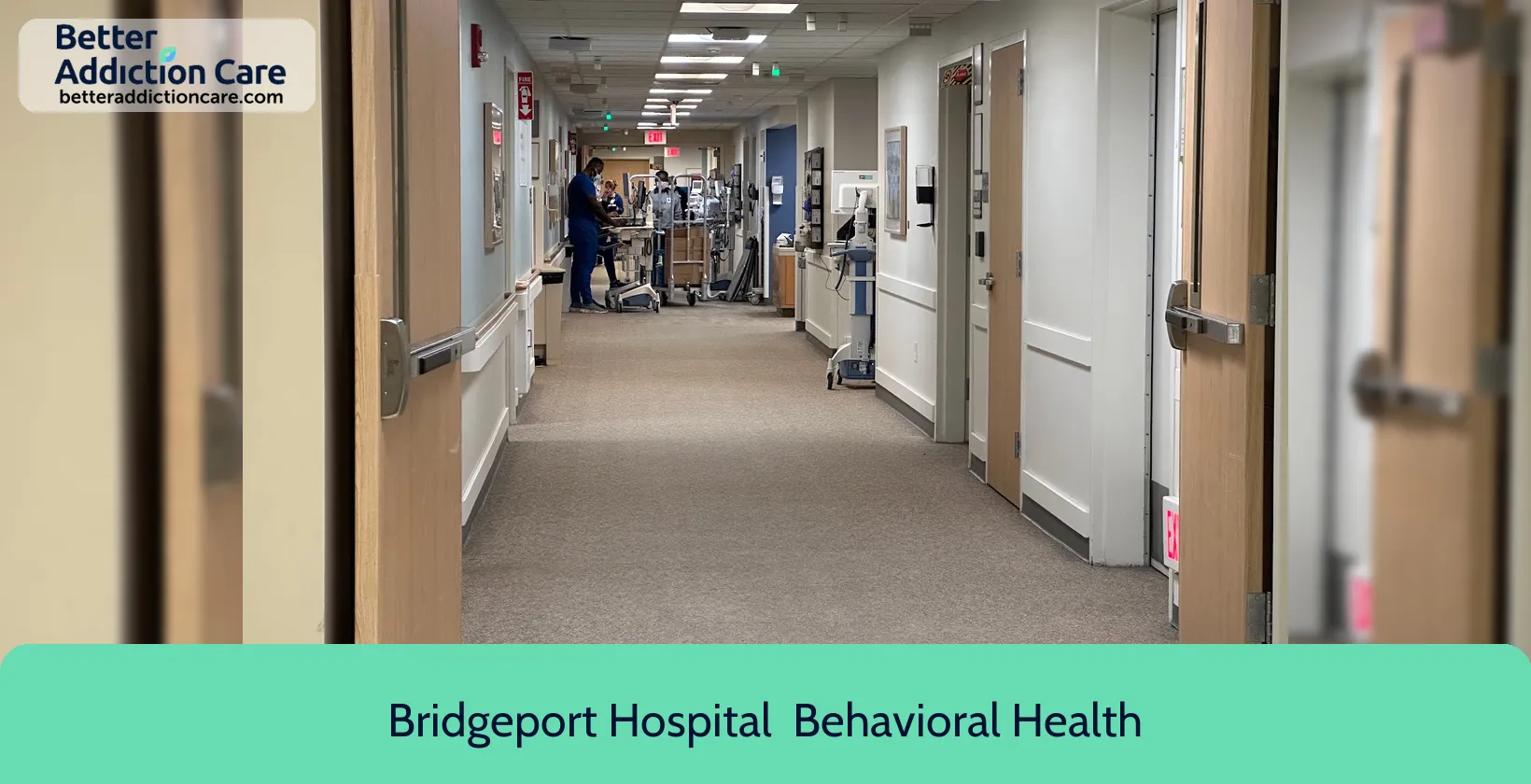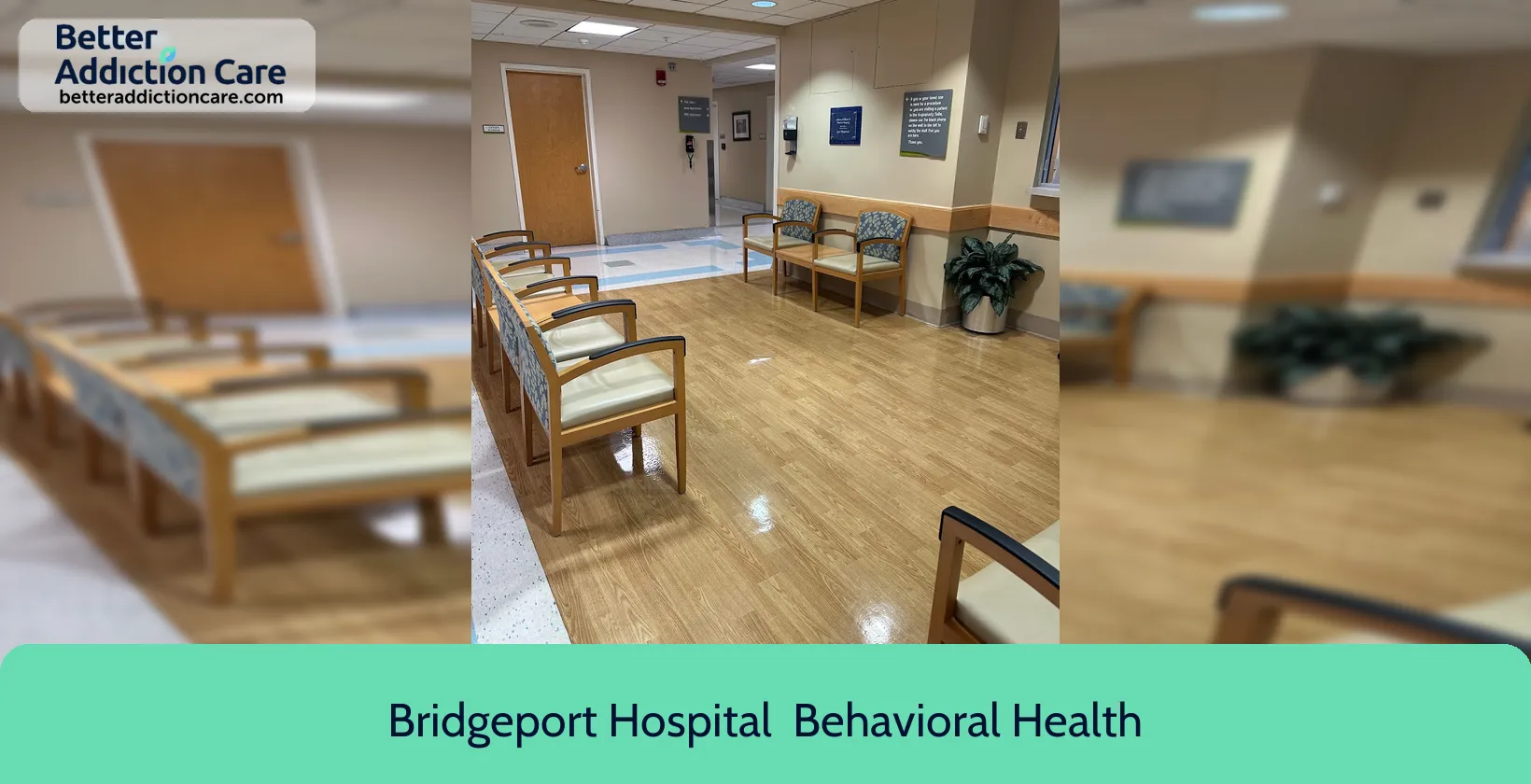Bridgeport Hospital - Behavioral Health Services WT9 - NE8
Overview
Bridgeport Hospital - Behavioral Health Services WT9 - NE8 is a mental health treatment center for people seeking treatment near Fairfield County. As part of their treatment modalities for recovery, Bridgeport Hospital - Behavioral Health Services WT9 - NE8 provides group counseling, integrated mental and substance use disorder treatment, and activity therapy during treatment. Bridgeport Hospital - Behavioral Health Services WT9 - NE8 is located in Bridgeport, Connecticut, accepting cash or self-payment for treatment.
Bridgeport Hospital - Behavioral Health Services WT9 - NE8 at a Glance
Payment Options
- Cash or self-payment
- Medicaid
- Medicare
- Private health insurance
- Federal military insurance (e.g., TRICARE)
Assessments
- Screening for tobacco use
- Comprehensive mental health assessment
- Comprehensive substance use assessment
Age Groups
- Seniors or older adults
- Young adults
- Adults
- Seniors
Ancillary Services
- Diet and exercise counseling
- Family psychoeducation
- Psychosocial rehabilitation services
- Suicide prevention services
Highlights About Bridgeport Hospital - Behavioral Health Services WT9 - NE8
6.59/10
With an overall rating of 6.59/10, this facility has following balanced range of services. Alcohol Rehabilitation: 8.00/10, Drug Rehab and Detox: 6.00/10, Insurance and Payments: 6.00/10, Treatment Options: 6.36/10.-
Alcohol Rehabilitation 8.00
-
Treatment Options 6.36
-
Drug Rehab and Detox 6.00
-
Insurance and Payments 6.00
Treatment At Bridgeport Hospital - Behavioral Health Services WT9 - NE8
Treatment Conditions
- Alcoholism
- Mental health treatment
- Substance use treatment
- Co-occurring Disorders
Care Levels
- Hospital inpatient/24-hour hospital inpatient
Treatment Modalities
- Group counseling
- Integrated Mental and Substance Use Disorder treatment
- Activity therapy
- Abnormal involuntary movement scale
Ancillary Services
Languages
- Spanish
Additional Services
- Pharmacotherapies administered during treatment
- HIV testing
Special Programs
- Clients with co-occurring mental and substance use disorders
- Persons 18 and older with serious mental illness (SMI)
- Persons with Alzheimers or dementia
Get Help Now
Common Questions About Bridgeport Hospital - Behavioral Health Services WT9 - NE8
Contact Information
Other Facilities in Bridgeport

7.32

7.02

6.65

7.49

6.74

6.65

7.63

7.22
Browse rehab centers near Bridgeport and in other cities across Connecticut
DISCLAIMER: The facility name, logo and brand are the property and registered trademarks of Recovery Network of Programs - Horizons, and are being used for identification and informational purposes only. Use of these names, logos and brands shall not imply endorsement. BetterAddictionCare.com is not affiliated with or sponsored by Recovery Network of Programs - Horizons.
